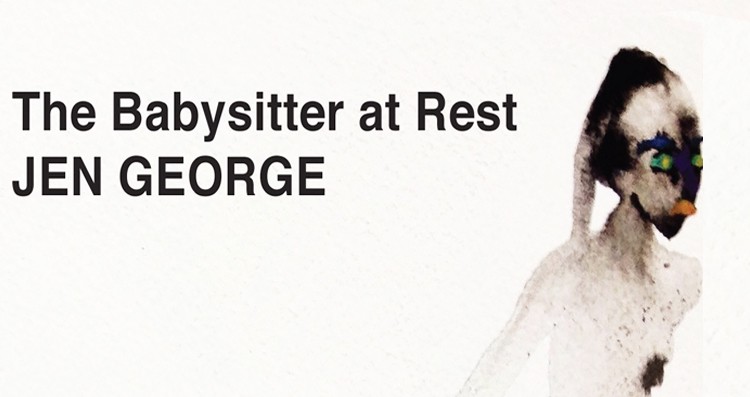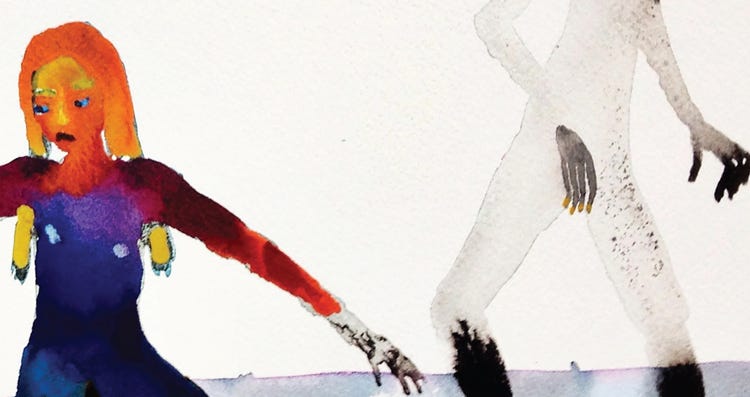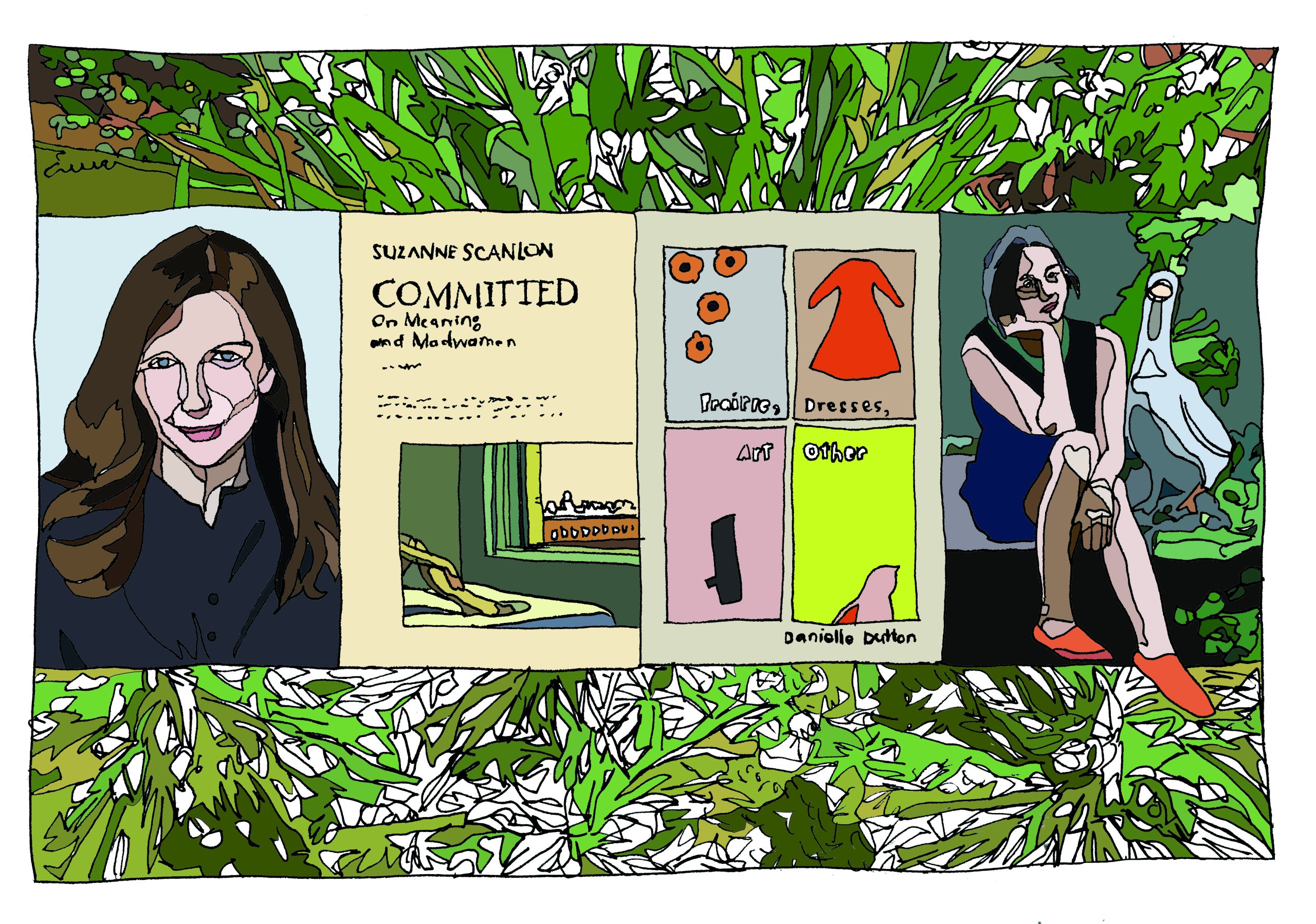Books & Culture
Sleeping through Alarms
Jen George’s debut collection is at once exciting, absurd, and inconsolably honest

Well-written characters, the wisdom goes, must make hard decisions and face the consequences of their decisions. They are agents of their own destinies. The characters in Jen George’s debut collection of stories, The Babysitter at Rest, were not written with this wisdom in mind. George’s protagonists are experts in passivity: they are doubters, weepers, the blamers and blamed, they who sleep through alarms. Taken together, they form a picture of contemporary life that is at once exciting, absurd, depressing, and inconsolably honest.
The collection’s first story, “The Guide / Party,” begins with a sexless, long-haired guide breaking through the narrator’s apartment window. The Guide is there to train the narrator how to be an adult. The narrator is clingy and desperate for The Guide’s attention, whereas The Guide treats the narrator with bureaucratic indifference. When the narrator tries to “justify [her] delayed adulthood” by listing terrible things that have happened to her, The Guide responds “The listed defenses for your incompetence are universal conditions, not individual, and as such do not excuse you from anything.” Here, George undermines how we normally think about character. Precise details do not individualize the narrator. They generalize her, and even make the Guide “hate [her] somewhat.”
“Does greatness meaning growing up? Does it require forgetting childhood traumas? Becoming rich?”
Through The Guide’s insistent demands and the narrator’s expressions of authentic loneliness, readers feel the unrealistic expectations forced onto young people, especially young women, who are consistently told to “make a lot of money to buy expensive beauty treatments” or to “radiate positive,” even as their lives fall apart. The question at the heart of this story — and much of the collection — is how to be great. Does greatness meaning growing up? Does it require forgetting childhood traumas? Becoming rich? And, most importantly, what must be sacrificed to become great in society’s eyes?
In the collection’s title story, a cartoonish example of greatness comes via Tyler Burnett, a wealthy philanderer who wears dark sunglasses and who is somewhere “between [the age] forty-seven and fifty-two.” The narrator, a woman between seventeen and twenty-one, babysits Tyler Burnett’s “forever baby,” which is exactly what it sounds like, and quickly becomes his mistress. Tyler Burnett is glitz without substance, things without meaning. When he first meets the narrator he says, “Chemicals and fishing, the water. Yes, television. Art, no. A walk. To Swim. Jokes and such are not my kind. Sexy and rubs are my sort of thing. With you, something distracting.”
Like The Guide, Tyler Burnett makes excessive demands, though his are mostly sexual. His requests are so straightforward they’re at once funny, completely unsexy, and routinely disturbing. He buys the narrator gifts, like ice cream and ponies, and calls her child. About him, the narrator admits:
“At times I forget if we’re lovers or if he’s my father.”
Away from her lover, the narrator works a dead-end job where she is repeatedly demoted. At home, her roommates seem to always be throwing parties. Parties reappear throughout George’s work: they give her the liberty to write about people in extreme states. Her prose, in these scenes, moves with a witty, frantic energy that is both addictive and insouciantly violent. “Lizzie Olsen shoots people with nail bullets from her wooden gun while her parents snort ketamine on the banquet table. . . . Tyler Burnett shows up high on ketamine and we screw under the bed in my room.” This party ends with a friend buried alive in a pool sealed shut with bricks. Though George’s stories often slide toward nihilism — “Is this it?” we might ask, “Is life just empty sex and drinking?” — the absurd energy of her prose and subjects charges the writing with carnivalesque joy. Life, for all its violence and pain, still deserves to be written about.
“Her prose […] moves with a witty, frantic energy that is both addictive and insouciantly violent.”
In the collection’s final story, “Instruction,” George most directly grapples with greatness. The story takes place at an elite art school where the artists bury racehorses and are constantly disparaged by a large-handed Teacher. George uses sections and subtitles to move quickly through student gripes, their projects, conversations, and excerpts from the Teacher’s memoir. The narrator — an art student — and Teacher have an affair, but unlike in earlier stories, she resists the crippling influence of the egomaniacal patriarch. She even leaves school to move upstate with her contemporaries. “There were a lot of paintings of pastoral scenes and writing in the form of diary entries about nature or chores produced during that time, most of which are now considered garbage, the period being referred to in the art world as ‘The Garbage Years.’”
The narrator becomes one of the most prolific artists of “The Garbage Years,” an unfortunate legacy, she admits. Her achievement is equally distinguished and worthless. At the end of the story, she visits her dying Teacher. “You could have been great,” he tells her. “There are other things,” she responds, a phrase that speaks for characters throughout the collection.

Chasing greatness spurs doubt, self-hatred, and pain — especially when the conditions for greatness are determined by the sort of egotistical men that reappear throughout George’s collection. Despite its criticisms of greatness — or perhaps because of them — The Babysitter at Rest is an undeniably great debut collection of stories. George’s writing is funny, courageous, smart, surreal, seductive, and terrifyingly vulnerable.









